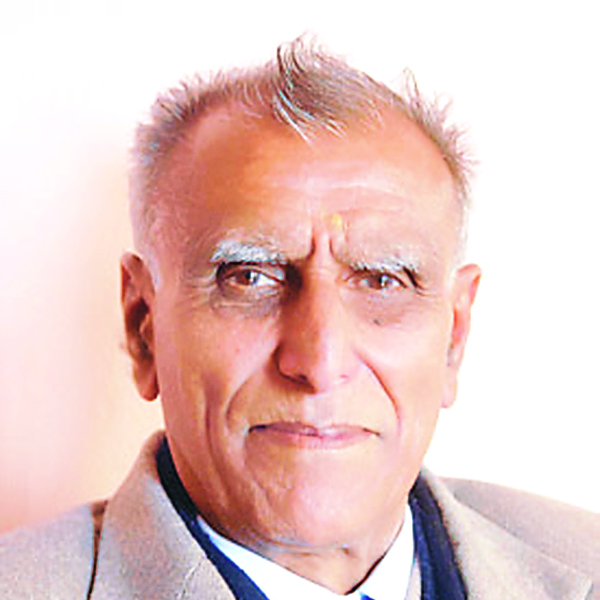Opinion
On your Marx
The inspiration BP drew from Marx with the central idea of socialism never changed
Ram Chandra Pokhrel
Democratic socialism, the guiding principle of the Nepali Congress (NC), was inspired by the great thinker Karl Marx. Marx was born in Trier, Germany 200 years ago. He is no more, but his works have made him immortal and he will be remembered for many years to come. No doubt Marx is regarded as one of the great thinkers of his time. The concept of materialistic interpretation of history was the first thunderbolt in the world of his time. Without Marx, the study of socialism would have remained incomplete and it would not have the solid foundation on which we have been moving forward by refining its thoughts and practices.
Every one of us who aspire for change in society and politics naturally appreciates his solid work on scientific socialism. Among the world political leaders motivated by him was BP Koirala whose whole family had been exiled to India for their efforts to bring change in society and end all kinds of exploitation and suppression. Living in exile in Varanasi, BP formed a study circle to study Marx and Marxism. As he mentioned in his autobiography Atmabritanta, the study circle even managed to secretly listen to Radio Moscow using a crude apparatus made by engineering students of Benaras Hindu University.
BP actively participated in the struggle against British colonial rule in India and joined the Quit India Movement led by Gandhi. BP strongly believed that the end of British colonial rule in India was essential to free Nepal from the clutches of the Rana dictatorship. During World War II, when communists displayed indifference to the Indian freedom movement branding it as bourgeois, BP’s perspective towards them changed. This change in the communists’ perspective was an outcome of the pact reached between the Soviet Union and Britain. Yet, BP was always inspired by Marx and Marxism, but not by communists.
BP was imprisoned by the British government where he had an opportunity to mix with prominent Indian leaders and read books on politics like Socialism Reconsidered and Gandhism Rediscovered. These books left an everlasting impression on him. Even then, the inspiration he drew from Marx and Marxism with the central idea of socialism never changed. BP would often say that socialism would have remained incomplete without Marx. Dictators of all kinds misinterpreted Marx to retain their grip on power.
After the founding of the NC in 1947, BP inspired prominent socialists of India to take the initiative to create a network of democratic socialist parties of Asia. Socialists of Burma, Indonesia and India immediately reached an understanding to issue a joint appeal in this regard. This created a new wave among socialists. The Asian Socialist Conference was held in 1953 with a substantial presence from different Asian countries and many observers from Europe, Africa and Socialist International. At this historic conference held in Rangoon, both Marx and Engels were remembered for their great contribution to a genuine socialist movement.
The Asian Socialist Conference concluded successfully by adopting resolutions that clearly recognised the revolutionary spirit of the socialist movement. The overwhelming spirit of the freedom movements in Asia that eventually threw off the yoke of colonialism and imperialism was greatly hailed. The conference largely perceived that Socialist International focused more on the problems and affairs of Europe and the developed and industrialised nations. Revisiting the fundamentals of socialism, the conference perceived that there were misinterpretations in the name of socialism.
Marx criticised capitalism precisely because it destroys individual personality as he criticised crude communism for the same reason. For Marx, the history of mankind is a history of the increasing development of man. And his concept of socialism is emancipation from alienation, the return of man to himself and self-realisation. Even pondering in depth, Marx visualised that socialism was nothing less than creating the conditions for a truly free, rational, active and independent man.
Whether we agree or disagree, the great philosopher, thinker, economist and practical historian Marx left an unchallengeable legacy in human history. Robert Heilbroner in his book The Worldly Philosophers has put a quote by Engels that was read out as his graveside oration: “Just as Darwin discovered the law of nature, so Marx discovered the law of evolution in human history.” The author of this article remembers the days of BP when he would not miss any moment of the remarkable dates of the great men of our time and would touch them with his own perception, and finally enrich us with it as if a new idea was born. Were he still alive today, what a wonderful tribute the great statesman and veteran socialist of our time would have given to Marx on his bicentennial event.
Pokhrel is a former member of the Legislature-Parliament.




 24.89°C Kathmandu
24.89°C Kathmandu











